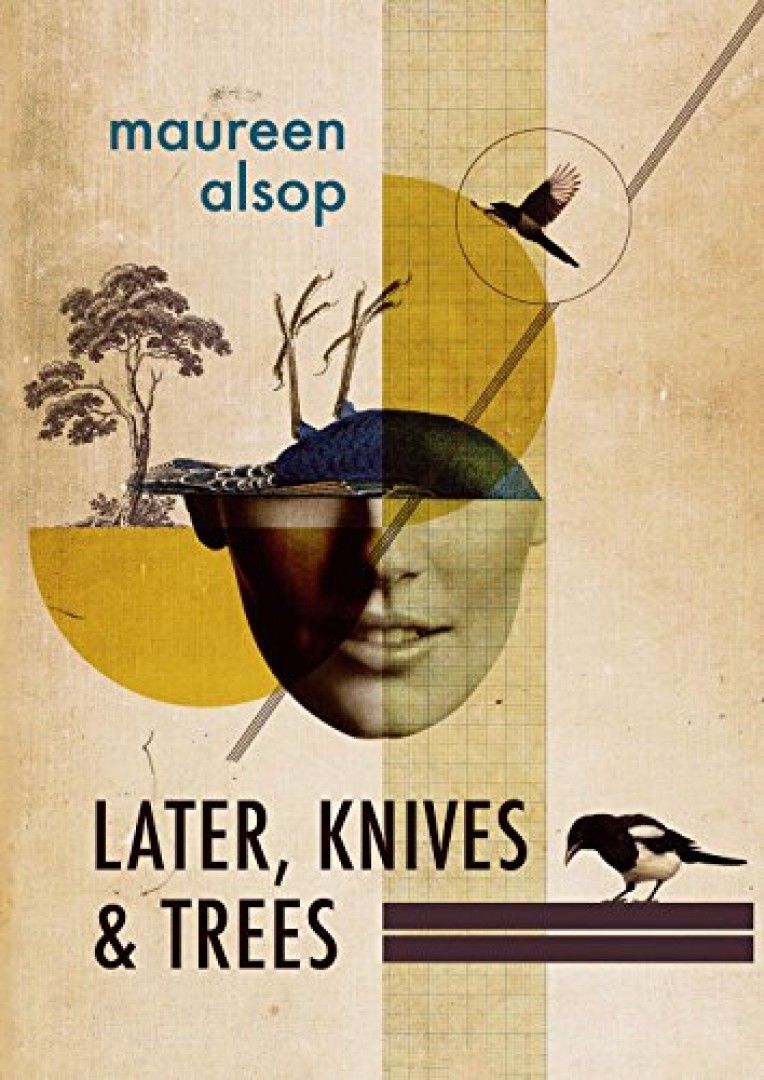Later, Knives & Trees
If you rotate these poems in your hand you will find they bend and scatter the light; they are prisms of language that break the sensual world into a spectrum, into lines of color. That refraction helps to account for the intensity of pleasure one finds in this book, which, despite its beauty, has grief at its heart. That grief resolves at moments into a fragile grace when, for instance, “the whisper of violets filled you.” At other moments the resolution is cold, angry, or pained but always the speaker articulates the wisdom of the half-dreaming mind—the mind that sees truth beyond the logic of her mother’s death. “—[R]eluctant text, I dream you,” says the speaker, and we recognize this statement at once for it’s incantatory power, just as a later poem announces “I wake to dream you”: to dream the text is to call it into being, to wake is to dream the departed back to being. The speaker admits “[p]rofane, I love wrongly,” and though she was not herself “named by love,” she asks us to let ourselves be named by it: “you (reader) must close your eyes,” she commands—and we do, we will! For here are poems to call us into being, to deliver us into the glittering, profane world.
–Hillary Gravendyk
Reviews on this Title
Later, Knives & Trees
-
Pages:68
-
Publisher:
-
ISBN:0942544986
-
Year:2014
-
Available on:
-
Purchase:
